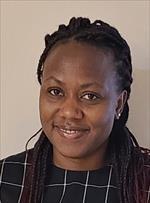Spring 2026 funding cycle: Applications available until Monday, March 2nd, 2pm PT.
- Call opens: Wednesday, January 28, 2026
- Deadline: Monday, March 2, 2026 (2:00 pm PST)
- Funding results: Available before end of June 2026
Amount available: $50,000 in direct costs for 1 year
Apply through the UCSF Resource Allocation Program (RAP) portal
The CFAR Mentored Scientist Award (our primary award program) is a mentoring and training grant targeted toward early stage (either at a senior stage of clinical or postdoctoral training or junior faculty) investigators at UCSF or affiliated partner institutes in the conduct of an HIV research project. These awards are designed to acquire preliminary data and research skills to prepare investigators for a future grant effort. Applicants for this award must indicate a faculty research mentor(s) who will commit to guiding the applicant throughout the duration of the proposed project.
Designation of Mentor
All Mentored award applications from individuals at the Assistant Professor level or below require an HIV research mentor. Mentors can, but are not required to, have supervisory authority over the applicant. CFAR requires your research mentor’s support to advise and guide the research portion of your application before submitting it to RAP.
Of high interest to CFAR are investigations ranging from basic pathogenesis to clinical outcomes in the research areas of HIV/aging and inflammation, latency, cure, vaccines, co-infections, HIV in women, implementation science, and research related to HIV-infected and HIV-impacted Bay Area populations. Projects must be within NIH’s HIV/AIDS research high or medium priority areas. Projects in closely related areas (e.g. TB, HCV, drug use, etc.) must be clearly linked to HIV in order to be eligible for CFAR funding.
The award amount is $50,000 in direct costs for one year.
CFAR requests that applicants review the NIAID HIV Language Guide as they prepare their proposals so that they can follow best practices on language for communicating respectfully about HIV and related topics, including the use of person-first, non-stigmatizing language. Please contact us if you have any questions about this request.
For more detailed information about this RFA, please see the RAP Portal.
To see examples of previously funded projects, see the list below.
Mentored Science Awardees
135 Awards
-
HIV and Female Genital Fistula: Co-morbidity and Integrated Care Opportunities in East Africa
HIV and Female Genital Fistula: Co-morbidity and Integrated Care Opportunities in East Africa

Abstract
Despite progress toward the UNAIDS targets, substantial gaps persist in the HIV care cascade, especially for adolescent girls and young women in sub-Saharan Africa (SSA), who experience disproportionately high HIV prevalence. Further, our parent data in Uganda demonstrates a higher baseline HIV prevalence (10.7%) among our larger fistula study cohort as compared to the national average (7.2%). Women face structural and social factors that increase their risk of both HIV and maternal morbidities.
-
HIV and Female Genital Fistula: Co-morbidity and Integrated Care Opportunities in East Africa
HIV and Female Genital Fistula: Co-morbidity and Integrated Care Opportunities in East Africa

Abstract
Despite progress toward the UNAIDS targets, substantial gaps persist in the HIV care cascade, especially for adolescent girls and young women in sub-Saharan Africa (SSA), who experience disproportionately high HIV prevalence. Further, our parent data in Uganda demonstrates a higher baseline HIV prevalence (10.7%) among our larger fistula study cohort as compared to the national average (7.2%). Women face structural and social factors that increase their risk of both HIV and maternal morbidities.
-
Predicting phenotype from genotype in HIV capsid and integrase
Predicting phenotype from genotype in HIV capsid and integrase

Abstract
HIV treatment has been transformed by highly active antiretroviral therapy. However, this progress is fragile as HIV is constantly evolving to escape these drugs. Moreover, investigational cures have been stymied by evolution of immune escape. Predicting when genetic changes in the virus will translate into clinically meaningful phenotypes—like drug resistance or immune escape —remains an unsolved problem.
-
Predicting phenotype from genotype in HIV capsid and integrase
Predicting phenotype from genotype in HIV capsid and integrase

Abstract
HIV treatment has been transformed by highly active antiretroviral therapy. However, this progress is fragile as HIV is constantly evolving to escape these drugs. Moreover, investigational cures have been stymied by evolution of immune escape. Predicting when genetic changes in the virus will translate into clinically meaningful phenotypes—like drug resistance or immune escape —remains an unsolved problem.
-
Exploring the PrEP implementation landscape in preventative health care delivery for women in two high incidence counties in Florida
Exploring the PrEP implementation landscape in preventative health care delivery for women in two high incidence counties in Florida

Abstract
This study proposes a formative qualitative investigation using focus group discussions and interviews with adult women, healthcare providers, and local stakeholders in two Florida counties with high HIV incidence. The goal is to understand communication strategies and clinical considerations related to the delivery of twice-annual injectable HIV pre-exposure prophylaxis (PrEP) within routine preventative healthcare visits. A regionally based advisory group will inform data collection priorities.
-
Exploring the PrEP implementation landscape in preventative health care delivery for women in two high incidence counties in Florida
Exploring the PrEP implementation landscape in preventative health care delivery for women in two high incidence counties in Florida

Abstract
This study proposes a formative qualitative investigation using focus group discussions and interviews with adult women, healthcare providers, and local stakeholders in two Florida counties with high HIV incidence. The goal is to understand communication strategies and clinical considerations related to the delivery of twice-annual injectable HIV pre-exposure prophylaxis (PrEP) within routine preventative healthcare visits. A regionally based advisory group will inform data collection priorities.
-
Modulating the Interferon Effector HELZ2 to Target HIV Persistence
Modulating the Interferon Effector HELZ2 to Target HIV Persistence

Abstract
Human Immunodeficiency Virus (HIV) remains a global health challenge despite the success of antiretroviral therapy (ART) in controlling viral replicati
-
Modulating the Interferon Effector HELZ2 to Target HIV Persistence
Modulating the Interferon Effector HELZ2 to Target HIV Persistence

Abstract
Human Immunodeficiency Virus (HIV) remains a global health challenge despite the success of antiretroviral therapy (ART) in controlling viral replicati
-
Investigating Interleukin-2 variants to enhance the antiviral capacity of HIV-specific CD8+ T cells
Investigating Interleukin-2 variants to enhance the antiviral capacity of HIV-specific CD8+ T cells

Abstract
Human immunodeficiency virus (HIV) continues to be a significant global health issue, affecting millions worldwide.
-
Investigating Interleukin-2 variants to enhance the antiviral capacity of HIV-specific CD8+ T cells
Investigating Interleukin-2 variants to enhance the antiviral capacity of HIV-specific CD8+ T cells

Abstract
Human immunodeficiency virus (HIV) continues to be a significant global health issue, affecting millions worldwide.

